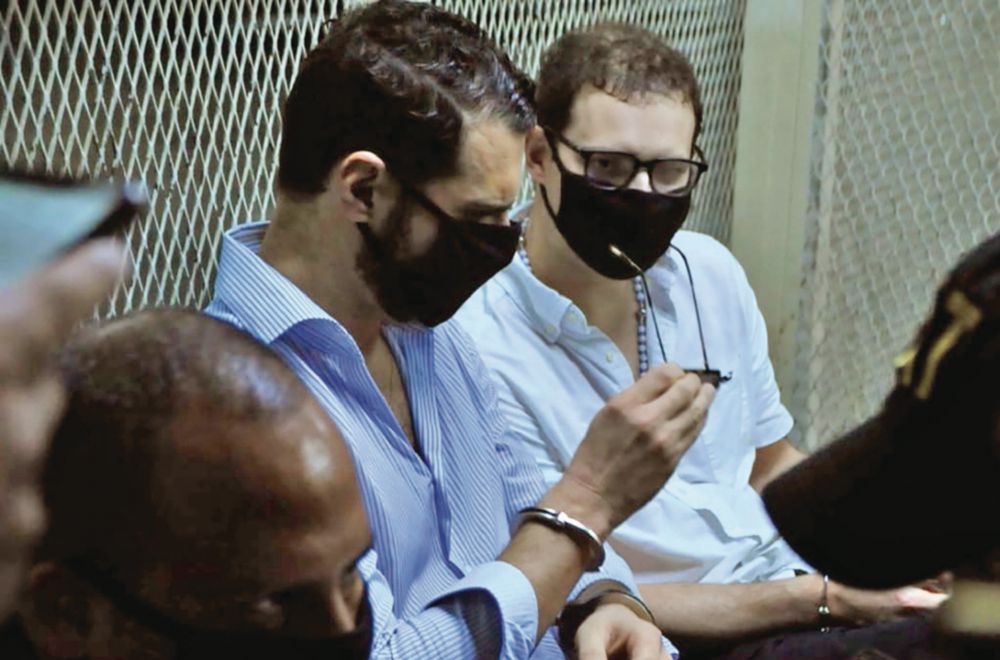Money laundering case against Martinelli fugitive sons

The Amparo of guarantees presented by the Public Ministry to the Supreme Court over the bonds (of $2 million each) granted to Ricardo Alberto and Luis Enrique Martinelli Linares- in the Odebrecht case, identifies the fact that the Second Court did not take into account statements that it had previously issued in the same process.
For example, reports La Prensa the seriousness of the crime (alleged money laundering), evasive conduct, their ability to erase traces to the extent that their current whereabouts are unknown, the danger of destruction of evidence, not having a fixed residence in the national territory and the economic capacity to take flight.
Tania Sterling, senior anti-corruption prosecutor, who drafted the appeal, recalled that Odebrecht would have made “illegal payments” in the period 2009-2014, and even earlier.
The Amparo of constitutional guarantees presented by the anti-corruption prosecutor Sterling against the bail not to be detained in the Odebrecht case granted on March 6 warns that the magistrates of the Second Superior Court relied on “conjectures” to grant them that benefit.
The prosecutor refers to magistrate María De Lourdes Estrada and her colleague José Hoo Justiniani, who she said, they did not explain the legal reasons on which they based their decision.
Sterling, said that the magistrates contradict arguments issued in five previous rulings by the court itself and the Twelfth Criminal Court, which had rejected that bail.
She stated that the procedural situation of the children of former President Ricardo Martinelli (2009-2014) has not changed. He recalled that an arrest warrant for extradition purposes weighs on both brothers, not only for the Odebrecht investigation but for the Blue Apple case .
The ruling, said Sterling, leaves “more doubts than answers.” This, due to the fact that the magistrates state in the judgment that “there is no danger of flight” or “danger of destruction of evidence”, an approach that, according to the prosecution, contradicts previous court decisions that state, precisely, the opposite.
The ruling that granted the bail to the Martinelli Linares also says that “they are Panamanians, they remain rooted in Panama City,” and states that there is no evidence that once they post the bail, they may put the other elements related to the investigation at risk. , since the case is from 2017 and has evolved “considerably in relation to the fact that links them”.
Sterling refuted the court’s claim that Martinelli’s children “remain rooted in Panama,” arguing that they have both been out of the country for more than six years and have been charged in the case in three of those years. and have not returned to the country at that time, “totally dissociating themselves from their obligations.”
“The Martinelli Linares never faced the process, which is why the prosecution requested their extradition,” said the prosecutor, who also explained that the Second Court of Justice violated article 32 of the Constitution, which enshrines the fundamental guarantee of due process, as well as article 20 of the Magna Carta, which establishes that “Panamanians and foreigners are equal before the law.”
Links
Among the arguments presented by Sterling that allegedly demonstrate the Martinelli Linares brothers’ connection with the alleged commission of the crime of money laundering, is the statement by André Rabello, former superintendent of the Brazilian construction company Odebrecht in Panama.
The former executive of the construction company revealed, among other things, that he made multi payments to the brothers to streamline invoice procedures and overcome administrative obstacles in the company’s public works contracts in Panama. All this, using the power they had for being the children of the then President of the Republic. In fact, the deal between Odebrecht and the Martinelli Linares, according to Rabello, was signed before July 1, 2009, when Martinelli had not yet taken office but was already president-elect.
Rabello’s confession came to light in November 2017, when the Twelfth Criminal Court, in charge of Óscar Carrasquilla, validated three collaboration agreements between the Special Anti-Corruption Prosecutor’s Office and Odebrecht.
Sterling also said that the brothers “used companies in various jurisdictions to open accounts that received illicit money from Kadair Investment Ltd, Fordel International and Aragon Finance Corp, all controlled by Odebrecht.”





